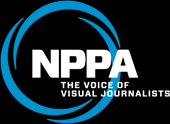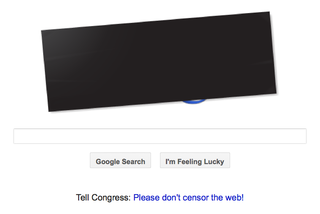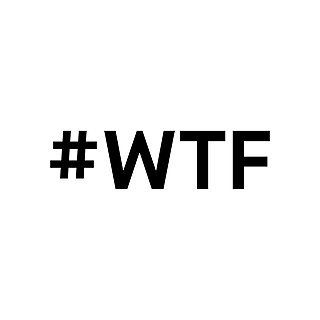
A copyright is a type of intellectual property that gives the creator of an original work, or another right holder, the exclusive and legally secured right to copy, distribute, adapt, display, and perform a creative work, usually for a limited time. The creative work may be in a literary, artistic, educational, or musical form. Copyright is intended to protect the original expression of an idea in the form of a creative work, but not the idea itself. A copyright is subject to limitations based on public interest considerations, such as the fair use doctrine in the United States.

The International Alliance of Theatrical Stage Employees, Moving Picture Technicians, Artists and Allied Crafts of the United States, Its Territories and Canada, known as simply the International Alliance of Theatrical Stage Employees, is a North American labor union representing over 168,000 technicians, artisans, and craftspersons in the entertainment industry, including live theatre, motion picture and television production, broadcast and trade shows in the United States, its territories, and Canada. It was awarded the Tony Honors for Excellence in Theatre in 1993.
Center for Democracy & Technology (CDT) is a Washington, D.C.–based 501(c)(3) nonprofit organisation that advocates for digital rights and freedom of expression. CDT seeks to promote legislation that enables individuals to use the internet for purposes of well-intent, while at the same time reducing its potential for harm. It advocates for transparency, accountability, and limiting the collection of personal information.
The Federation Against Copyright Theft (FACT) is a British organisation established in 1983 to protect and represent the interests of its members' intellectual property (IP). FACT also investigates fraud and cybercrime, and provides global due diligence services to support citizenship investment and trade, business, financial and legal compliance.

Adam Werbach, is a technology entrepreneur, environmental activist, and author. In 1996, Werbach became the youngest person ever elected as national president of the Sierra Club, at the age of 23. He is the author of the books Act Now, Apologize Later and Strategy for Sustainability: A Business Manifesto Werbach was a frequent contributor to The Atlantic, serving as the magazine's online "sustainability expert." He co-founded the re-use company Trove, and is now the Head of Digital for Kapital Entertainment.

The National Press Photographers Association (NPPA) is an American professional association made up of still photographers, television videographers, editors, and students in the journalism field. Founded in 1946, the organization is based in at the Grady College of Journalism and Mass Communication at the University of Georgia. The NPPA places emphasis on photojournalism, or journalism that presents a story through the use of photographs or moving pictures. The NPPA holds annual competitions as well as several quarterly contests, seminars, and workshops designed to stimulate personal growth in its members. It utilizes a mentor program which offers its members the opportunity to establish a relationship with a veteran NPPA member and learn from them. The organization also offers a critique service, a job bank, an online discussion board, and various member benefits.
In the United States, internet censorship is the suppression of information published or viewed on the Internet in the United States. The First Amendment of the United States Constitution protects freedom of speech and expression against federal, state, and local government censorship.

The Motion Picture Association (MPA) is an American trade association representing the five major film studios of the United States, as well as the video streaming service Netflix. Founded in 1922 as the Motion Picture Producers and Distributors of America (MPPDA) and known as the Motion Picture Association of America (MPAA) from 1945 until September 2019, its original goal was to ensure the viability of the American film industry. In addition, the MPA established guidelines for film content which resulted in the creation of the Motion Picture Production Code in 1930. This code, also known as the Hays Code, was replaced by a voluntary film rating system in 1968, which is managed by the Classification and Rating Administration (CARA).

Copyright infringement is the use of works protected by copyright without permission for a usage where such permission is required, thereby infringing certain exclusive rights granted to the copyright holder, such as the right to reproduce, distribute, display or perform the protected work, or to make derivative works. The copyright holder is typically the work's creator, or a publisher or other business to whom copyright has been assigned. Copyright holders routinely invoke legal and technological measures to prevent and penalize copyright infringement.

The Graphic Artists Guild is a guild of graphic designers, illustrators, and photographers and is organized into seven chapters around the United States. It is a member of the international organization Icograda.

United States Senate Bill S.3804, known as the Combating Online Infringement and Counterfeits Act (COICA) was a bill introduced by Senator Patrick Leahy (D-VT) on September 20, 2010. It proposed amendments to Chapter 113 of Title 18 of the United States Code that would authorize the Attorney General to bring an in rem action against any domain name found "dedicated to infringing activities," as defined within the text of the bill. Upon bringing such an action, and obtaining an order for relief, the registrar of, or registry affiliated with, the infringing domain would be compelled to "suspend operation of and lock the domain name."

The PROTECT IP Act was a proposed law with the stated goal of giving the US government and copyright holders additional tools to curb access to "rogue websites dedicated to the sale of infringing or counterfeit goods", especially those registered outside the U.S. The bill was introduced on May 12, 2011, by Senator Patrick Leahy (D-VT) and 11 bipartisan co-sponsors. The Congressional Budget Office estimated that implementation of the bill would cost the federal government $47 million through 2016, to cover enforcement costs and the hiring and training of 22 new special agents and 26 support staff. The Senate Judiciary Committee passed the bill, but Senator Ron Wyden (D-OR) placed a hold on it.

The Stop Online Piracy Act (SOPA) was a proposed United States congressional bill to expand the ability of U.S. law enforcement to combat online copyright infringement and online trafficking in counterfeit goods. Introduced on October 26, 2011, by Representative Lamar Smith (R-TX), provisions included the requesting of court orders to bar advertising networks and payment facilities from conducting business with infringing websites, and search engines from linking to the websites, and court orders requiring Internet service providers to block access to the websites. The proposed law would have expanded existing criminal laws to include unauthorized streaming of copyrighted content, imposing a maximum penalty of five years in prison.

The Online Protection and Enforcement of Digital Trade Act is a bill introduced in the United States Congress proposed as an alternative to the Stop Online Piracy Act and PROTECT IP Act, by Senator Ron Wyden of Oregon, a Democrat, and Representative Darrell Issa of California, a Republican. The text of the bill is available for public comment at keepthewebopen.com.
The Copyright Alliance is a nonprofit, nonpartisan 501(c)(4) organization representing artistic creators across a broad range of copyright disciplines.

On January 18, 2012, a series of coordinated protests occurred against two proposed laws in the United States Congress—the Stop Online Piracy Act (SOPA) and the PROTECT IP Act (PIPA). These followed smaller protests in late 2011. Protests were based on concerns that the bills, intended to provide more robust responses to copyright infringement arising outside the United States, contained measures that could possibly infringe online freedom of speech, websites, and Internet communities. Protesters also argued that there were insufficient safeguards in place to protect sites based upon user-generated content.
Demand Progress is a US-based internet activist-related entity encompassing a 501(c)4 arm sponsored by the Sixteen Thirty Fund and a 501(c)(3) arm sponsored by the New Venture Fund. It specializes in online-intensive and other grassroots activism to support Internet freedom, civil liberties, transparency, and human rights, and in opposition to censorship and corporate control of government. The organization was founded through a petition in opposition to the Combating Online Infringement and Counterfeits Act, sparking the movement that eventually defeated COICA's successor bills, the Stop Online Piracy Act and the PROTECT IP Act, two highly controversial pieces of United States legislation.
The Police Intellectual Property Crime Unit (PIPCU) is a unit of the City of London Police, the national lead force for fraud. It was established in 2013 with the responsibility to investigate and deter serious and organised intellectual property crime in the United Kingdom.

Win the Future (WTF) is an American political organization. It was co-founded in 2017 by Reid Hoffman, Mark Pincus, and Adam Werbach following Donald Trump's election to the U.S. presidency.